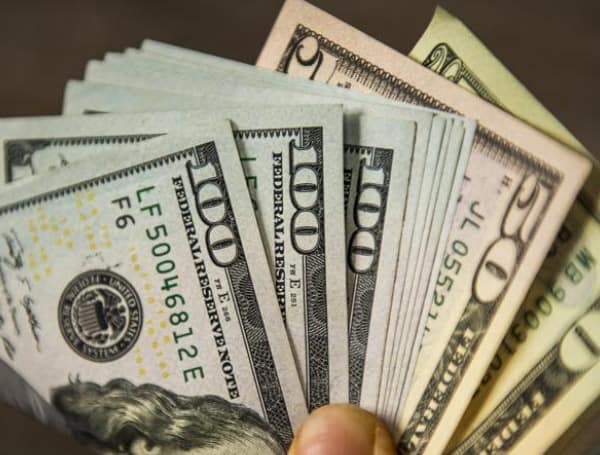Jerome Powell, chair of the Federal Reserve, told reporters Wednesday during a press conference that he does not believe that the economy is heading toward stagflation amid speculation.
Powell criticized the speculation among market watchers that the economy was heading toward a period of stagflation marked by high inflation and low growth, pointing to growth in certain metrics in the last few quarters, low unemployment, and decelerating inflation, according to remarks made at a press conference following the Federal Open Market Committee’s (FOMC) rate decision.
The FOMC chose to keep the federal funds rate in a range of 5.25% and 5.50% on Wednesday, a 23-year high, despite persistent inflation.
Read: Fed’s Preferred Inflation Gauge Surges Higher In Yet Another Worrying Sign For US Economy
“GDP print has led some to start mentioning the term stagflation with respect to the U.S. economy. Do you, or anyone else on the FOMC, think it is now a risk?” Claire Jones, a reporter at the Financial Times, asked Powell.
“I was around for stagflation, and it was 10% unemployment. It was high single-digits inflation and very slow growth,” Powell responded. “So, right now we have 3% growth, which is pretty solid growth, I would say by any measure, and we have inflation running under 3%. I don’t really understand where that’s coming.”
The Fed’s preferred inflation gauge, the personal consumption expenditure price index, increased to 2.7% year-over-year in March, up from 2.5% the month before, far from the Fed’s 2% target. Another measure of inflation, the consumer price index, measured 3.5% in March and has failed to retreat below 3% since it peaked at 9% under President Joe Biden in June 2022.
Due to persistently elevated levels of inflation month after month and a slowdown of gross domestic product growth to just 1.6% in the first quarter of 2024, many economists have asserted that the economy is entering or is already in a period of stagflation. While the unemployment rate has remained low at 3.8% as of March and job growth has come in above trend, increases in employment have been dominated by part-time jobs and government positions.
Read: Former Obama Official’s Attempt To Blame Businesses For Inflation Rebuked
“In addition, I would say, most forecasters, including our forecasting, was that last year’s level of growth was very high.” Powell continued. “3.4% in the fourth quarter and probably not going to be sustained and would come down. That would be our forecast; that wouldn’t be stagflation. That would still be a very healthy level of growth, and of course, with inflation, we will return inflation to 2%. I don’t see the stag or flation, actually.”
Democratic economist Lawrence Summers released a paper in February that calculated how changes in the way inflation is calculated, particularly in regards to interest rates, have lowered current metrics as compared to those during the era of stagflation in the 1970s and 1980s. Summers and other researchers found that inflation would be far greater if it were calculated under the old system.
First published by the Daily Caller News Foundation.
Help support the Tampa Free Press by making any small donation by clicking here.
Android Users, Click To Download The Tampa Free Press App And Never Miss A Story. Follow Us On Facebook and Twitter. Sign up for our free newsletter.



